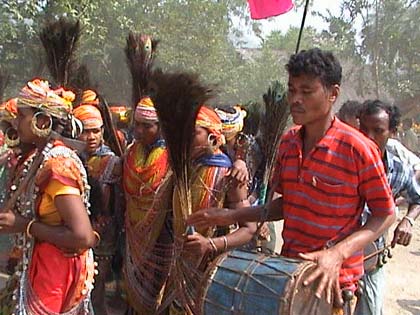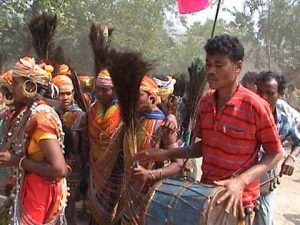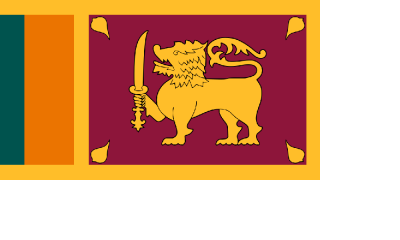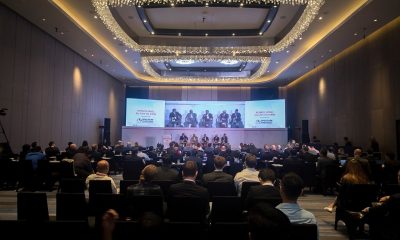Gaming
Can tribes in India go the American way?

Indian gaming has turned out to be extremely popular and profitable in the United States of America, where areas have been demarcated for indigenous tribes and Tribal Councils have been given considerable autonomy over various matters concerning their development. Thus, most tribes in America have chosen to operate grand-size Indian casinos on some part of their sovereign land and the total estimated revenue from these Native American gaming activities (for avoiding confusion, Indian gaming: is hereinafter referred to as Native American gaming) is a mind-boggling figure of over U.S. $ 14 billion.
After looking at the enormous success of these Native American casinos, I was tempted to look at the possibility and feasibility of having such casinos in the areas notified to be Scheduled Areas (i.e. areas where scheduled tribes are given considerable autonomy to manage their affairs).
I will now look into the possibility of legally having such casinos in the Scheduled Areas, the procedure for allowing the same and the feasibility of having such casinos in the tribal areas.
Legal issues involved
The fifth and the sixth schedules of the Constitution of India deal with the administration of areas with substantial tribal population (the sixth schedule deals with tribal areas in the North-Eastern states and fifth schedule deals with tribal areas elsewhere). These schedules give considerable autonomy to the Tribal Advisory Councils (TACs), for effective functioning of the area in the interest of protecting the tribals from being exploited. Laws may even be created to prevent transfer of land to non-tribals to protect the tribals interests, culture and identity.
There is also considerable powers bestowed to the Governor of States having Scheduled Areas reserved for protecting the autonomy of indigenous tribes. According to Clause 5 (1) of the fifth schedule, the governor of a state having scheduled areas can by merely issuing a notification stating that a particular State or Central government statute would not apply/apply partially to a particular scheduled area.
Clause 5 (1) of the fifth schedule reads as follows:
5. Law applicable to Scheduled Areas :-
(1) Notwithstanding anything in this Constitution, the Governor may by public notification direct that any particular Act of Parliament or of the Legislature of the State shall not apply to a Scheduled Area or any part thereof in the State or shall apply to a Scheduled Area or any part thereof in the State subject to such exceptions and modifications as he may specify in the notification and any direction given under this sub-paragraph may be given so as to have retrospective effect.
This authority of the governor to pass an appropriate notification for the well-being of the tribal areas has being confirmed by the Honble Bombay High Court in Mansing Surajsingh Padvi vs The State Of Maharashtra, (1968) 70 BOMLR 654.
The Governor, however, has been authorised by sub-para. (1) of para. 5 of the Fifth Schedule to direct, not only that an Act shall be subject to certain exceptions or modifications in its application to a Scheduled area, but that it shall not apply at all to such an area. Moreover, the Governor has been expressly empowered to give retrospective effect to any such directions. Now, since the Governor of Maharashtra had the power to issue a notification under sub-para. (1) of para. 5 directing that the Bombay Amending Act 13 of 1956 shall not apply at all to Mehwassi Estates in the West Khandesh District, he had obviously the power to direct that certain important provisions of that amending Act shall not apply to that area. We cannot, therefore, accept Mr. Porus Mehta’s argument that the impugned Notification was issued in excess of the Governor’s powers under sub-para. (1) of para. 5.
Thus it is apparent that the governor can issue any notification to modify/nullify any State/Central Act which he feels is in the interest of the tribals.
Thus, for tribal gaming to become a reality, the governor may just issue a notification making the Sections penalising gaming of the relevant State gaming/ police act, not applicable to the concerned Scheduled area.
Feasibility of tribal gaming in India
As far as feasibility of tribal gaming is concerned, when debates are raging as to the grabbing of tribal land by MNCs for industrialisation and the debate raging as to what kind of industrialisation of backward areas can lead to the welfare of tribals, indigenous gaming might just be the solution to the problem of backwardness of tribals. It might be noticed that the gaming sector cannot develop in isolation. It flourishes only along with other complimentary sectors like tourism and entertainment.
And is there a better way to empower the tribals other than allowing them to showcase their own culture, customs and traditions by developing world-class casino resorts having all state-of-the art entertainment facilities?
It must be noted that though these proposed casino-resorts having all modern entertainment facilities can be developed by leading companies having experience in such projects, the ultimate management and control of any such resorts should be in the hands of the native tribals. (In any case, it would not be possible for large corporations to purchase tribal land without legal complications due to laws preventing transfer of tribal land to non-tribals). And once such casinos are developed, it wont take long to transform the tribal regions to prosperity; as these resorts would obviously be meant for urban upper-middle class Indians, wanting some fun on weekends. Thus along with the resort, there would also be employment of tribals, development of basic infrastructure for the region and influx of funds. And this would happen while the resorts are under the control and direction of the TACs.
Another point which requires consideration is the issue of accessibility. A cursory glance at the list of scheduled areas (for complete list of scheduled areas in India, click here) would indicate that certain Scheduled areas in the districts of Thane, Pune , Nashik and Surat among others, are extremely close to urban areas and can certainly be successful entertainment resorts.
In fact the Thane district is only around 50 kilometres away from Mumbai, the largest city and arguably the largest gaming market in India. Other scheduled areas can also be gradually developed into casino-resorts and made accessible; as most of these areas are close to Tier I and Tier II cities.
The time frame and intricacies of this potentially lucrative and beneficial form of gaming will eventually have to be figured out. Activists, tribal leaders and entrepreneurs must collectively make efforts to develop tribal gaming in India.




















ramanuj
May 3, 2011 at 3:09 pm
very nice jay, well researched and well thought. I can imagine some people crying foul that this is going to destroy the tribal culture etc. but the truth is that this could be a strong weapon to counter poverty and illiteracy.
Jay Sayta
May 3, 2011 at 3:23 pm
Yes, tribal gaming can radically improve the Scheduled areas which is why I wrote this. This would in fact enrich tribal culture as such gaming/resorts can be in their traditional backdrop etc. and the tribals will also get to showcase their culture in front of Indians and foreigners who would otherwise not have visited these areas.
siddharth
May 8, 2011 at 1:21 am
very well said,it could really help for erradication of poverty. making place a tourist attraction,nd could provide an all round development.
Aakash
May 13, 2011 at 10:00 am
Very ingenious idea. Out of the box indeed. Keep up the good work.
Ratnakar
May 25, 2011 at 2:12 am
Good work.
The real thorn in the flesh might be that many of these scheduled areas have strong maoist presence.
Jay,
Is there a viable opportunity linking scheduled areas with online gambling rather than brick and mortar casinos ?
Jay Sayta
May 25, 2011 at 11:04 am
Hey,
Tribal gaming can actually also curb the Maoist influence by speeding up development. But since it may take some time to solve this problem, I have suggested that first tribal gaming should be started in the Thane district of Maharashtra and Gujarat, these areas are comparatively safe and Maoist free.
Online gaming from these tribal areas can also be a possibility (if the governor decides to make certain provisions of the Information Technology Act inapplicable to these areas), but I anticipate problems of participation and payment gateways to continue, unless there can be a specific legislation to the contrary.
Sujith
July 12, 2011 at 12:40 pm
this is very idealistic..Seems like you dont have adequate knowledge of either indian tribes or the Indian Gaming Regulatory Act (IGRA) for native americans. Native Americans were already in the casino business for a good 20 years before the IGRA kicked in.. u seem to think that casinos are the solutions to all tribal problems. Agreed that a hotel/ casino with a tribal theme might be a success..but how this translates into a programme for the upliftment of poor tribals and adhivasis in india is beyond my understanding..there are many other ways to do this, an adhivasi casino seems like a bad joke to me in the current environment but could be a good idea for the future
Sholaga
June 12, 2014 at 11:59 pm
It always irks me to see north American “Indians’ as an ethnic designation.
Economically,casinos on reserves seem to work very profitably, but the the article, for whatever ‘reason’, avoids the social, ethnic, language , identity and health issues. Money alone is not a factor in the well-being of a people.Health, education, tribal heritage/knowledge, language, family structures, and territorial integrity are needed for their survival– so they can run the “Casinos” of life!;-)Who is going to keep the usurping thugs out?
nagu
October 5, 2014 at 10:21 pm
Tribal culture is unique with different traditions,language,custome and jewlary.if anything introduced against their traditions without education,employment and without participation in the management of such activities not only the tribal loose thei entity but entire human kind loose such tradition and language and it will be against nature and inhuman.
Dhongibaba
October 8, 2014 at 1:53 am
The Red Indian Tribes were not allowed to build casino’s to allow their upliftment, the Indians were given sovereign status because they were the original inhabitants of the land, thus it would be unfair for settlers to force their own laws upon the original inhabitants. As situation grew tense between settlers and the indigenous people, various agreements were reached to allow for their independence and sovereignity. It was accepted that the settlers could not force their laws on the indegenous, thus Red Indians were given freedom or sovereign status which meant they would not be subject to AMerican laws, with certaing exceptions. When we talk about Tribals in India, are we in anyway accepting that they our not our own and that we have encroached on their lands as outsiders, because if that is not the case, tribals have to be subject to the same law as rest of India.
Pingback: Gambling in India: A view at Autonomous Tribal Regions – LawSayLogic